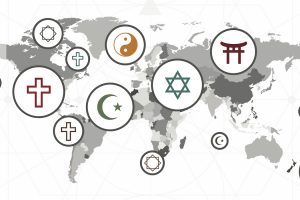
Sarmad Naveed, Canada
Today marks the celebration of Diwali, which is a major festival observed by Hindus, Jains and Sikhs. It is celebrated ‘from the 13th day of the dark half of the lunar month Ashvina to the second day of the light half of the lunar month Karttika’
The term Diwali comes from the Sanskrit word dipavali which translates to ‘row of lights’. A name befitting the purpose, because in a nutshell, Hindus, Jains and Sikhs celebrate Diwali to signify the prevalence of light over darkness.
On Diwali, houses are decorated with windows and doors left open in the hopes of inviting Lakshmi, who Hindus believe to be the goddess of prosperity. Small diyas or earthenware lamps filled with oils are also lit up in rows. The significance of the celebration varies from area to area, whether celebrating the homecoming of Rama after defeating the 10-headed demon king, Krishna’s defeat of the demon Narakasura or the marriage of Lakshmi and Vishnu to name a few.
Interestingly, this year’s Diwali falls on the same day that the UK sees its first British-Asian Hindu Prime Minister Rishi Sunak, who will attempt to lead the country into light, out of what have certainly been tumultuous times.
Millions around the world today will be celebrating Diwali, also known as the festival of light. It is yet another celebration in the mosaic of world faiths, which should be respected equally alongside the celebrations of other religions. It is this very respect and honour which can lead to the light of tolerance, unity, harmony and ultimately peace in our world.



Add Comment